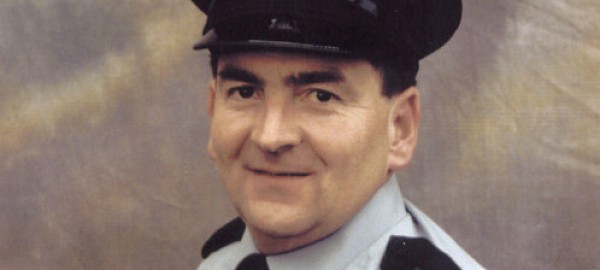
Firefighter Joe McCloskey died on duty in October, 2003.
Part time fire fighter Joe McCloskey (50) died hours after falling through a roof into a blazing storeroom while fighting a blaze at the Gorteen House Hotel in Limavady on Halloween night October 31, 2003.
Since then his wife Marie and children have campaigned for the full circumstances surrounding his death and who ordered him onto the roof in the first place to be made public.
The father-of-five fell after he and a colleague had been ordered onto the roof of the burning building.
Three separate investigations have been carried out into the circumstances of his death.
They include a joint fatal accidents investigation by the Northern Ireland Fire Brigade (NIFB) and Fire Brigade Union (FBU), a Health and Safety Executive NI investigation and a PSNI investigation on behalf of the coroner.
The NIFB was later replaced by the Northern Ireland Fire and Rescue Service (NIFRS).
None of the investigations apportioned blame to any single person or act.
But in 2016, in an unusual move, Attorney General John Larkin QC, after ruling out a new inquest, identified a retired firefighter as the man he believes gave the order to put Mr McCloskey on the roof.
The McCloskey family has voiced concern about the joint NIFB and FBU investigation carried out after his death.
In January 2017, the then Health Minister Michelle O’Neill ordered a review of the actions of fire authorities in the aftermath of the tragedy.
It concluded that there are lessons to be learned regarding the support provided to the McCloskey family by the NIFB/NIFRS and the “efficacy of the internal investigation”.
It also found the NIFB did not take the opportunity to learn from previous experience – between 1978-1995 when four firefighters were killed – and develop “an effective approach with families in these tragic circumstances”.
“The inclusion of ‘no blame’ with a potential impact on possible disciplinary issues also requires re-consideration,” it said.
The report made several recommendations including that the NIFRS apologise to the McCloskey family for failing to learn from previous experience.
It said the NIFRS should acknowledge that it and the NIFB had taken a different approach to internal investigations to any other fire service across these islands.
It added that “it would appear that the NIFRS has failed to recognise the concerns raised by the McCloskey family regarding potential conflict of interest in the joint internal investigation” into the fireman’s death.
The report said in light of the Chief Fire Officers Association (CFOA) guidance, local fire chiefs should review their own policy around the “the possible impact of guaranteeing FBU a joint investigation” and the inclusion of “no-blame as a principle at the outset of an internal investigation”.
It suggested a “comprehensive review of available information around the NIFB/FBU investigation into Mr McCloskey’s death should be carried out by the department in order to be assured of the efficacy of the investigation”.
In a letter to Mr McCloskey’s widow Marie, Gary Thompson, NIFRS’s Chief Officer Gary Thompson, said: “I fully and unreservedly apologise to you and your family for these failings….”
“I fully acknowledge our lack of duty of care towards you and your family in the aftermath of Joe’s death.
“Please be assured that Joe will never be forgotten by NIFRS.”
However, Mrs McCloskey said it was a “disgrace” that it took 15 years for fire chiefs to apologise.
She told The Irish News: “As far as I am concerned I never want to hear Joe’s name in the same sentence as the fire brigade,” she said.
“They go on about how he will never be forgotten.
“The basic facts are Joe was carrying out orders but they know who gave the order and they won’t confirm it.”
Sinn Féin Dungiven councillor Sean McGlinchey has worked closely with the McCloskey family.
“There are recommendations that the family have achieved that will help other families,” he said.
A spokeswoman for the Fire Service said: “All recommendations contained within the review have been implemented.”
Tags:




